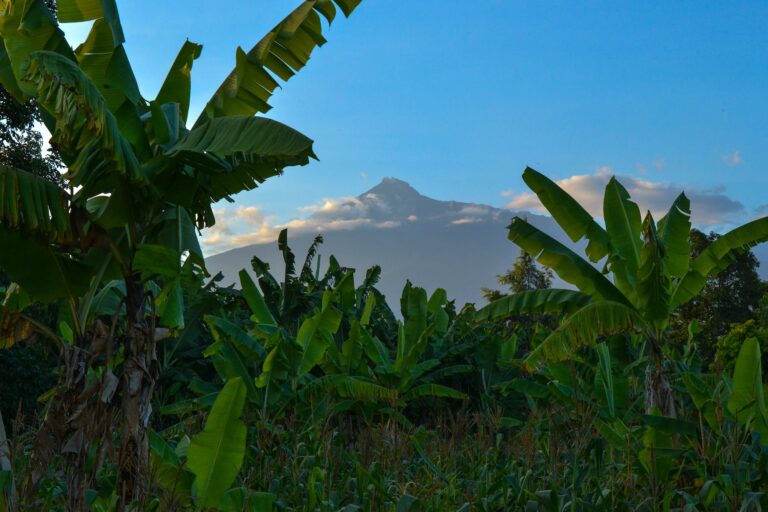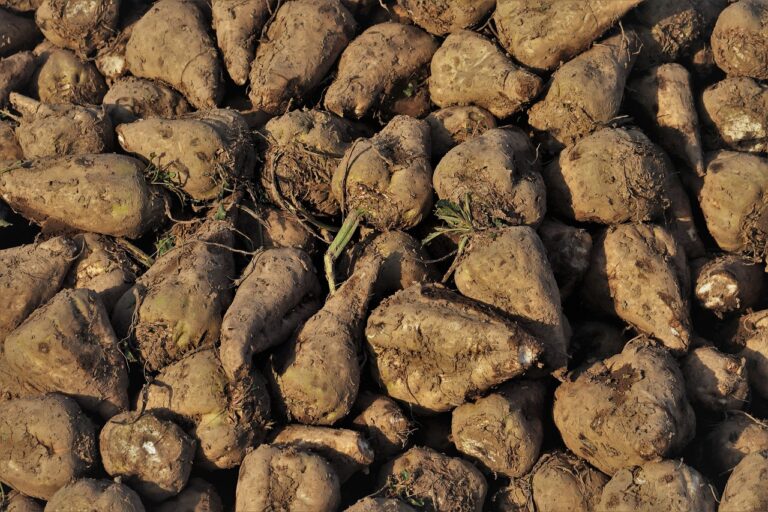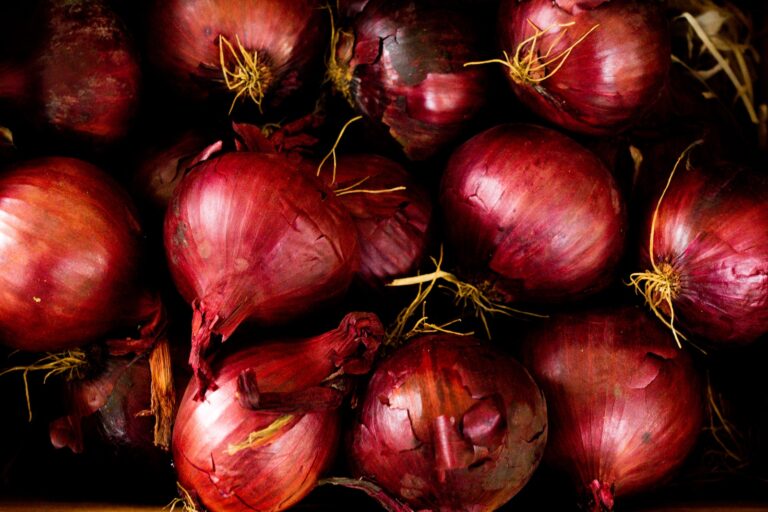15 Organic Farming Methods for Sustainable Agriculture in Kenya
Have you ever wondered if there are effective organic farming methods that can contribute to sustainable agriculture in Kenya? Well, the good news is that there are!
In fact, there are 15 organic farming methods that have been proven to be successful in promoting sustainable agriculture in Kenya. These methods include crop rotation, composting, intercropping, mulching, agroforestry, conservation tillage, vermicomposting, crop diversification, and integrated pest management, among others.
But what makes these methods so effective? And how can they contribute to the overall sustainability of agriculture in Kenya? Keep reading to find out!
Crop Rotation
Crop rotation is a fundamental practice used in organic farming methods in Kenya to improve soil health and enhance crop productivity. By rotating crops in a systematic manner, farmers can reduce the risk of soil erosion, pest and disease infestations, and nutrient depletion.
Crop rotation involves growing different types of crops in succession on the same piece of land over a period of time. This practice helps break pest and disease cycles, as different crops attract different pests and diseases, reducing the overall impact on the soil. Additionally, certain crops have the ability to fix nitrogen in the soil, replenishing nutrient levels and enhancing soil fertility.
For example, leguminous plants like beans and peas have symbiotic relationships with nitrogen-fixing bacteria, which convert atmospheric nitrogen into a form that plants can use. When these crops are rotated with others, they contribute to the overall improvement of soil health and nutrient availability.
Composting
Composting is an essential practice in organic farming with several benefits. It helps to improve soil structure, fertility, and water retention, leading to healthier and more productive crops.
There are various composting techniques such as aerobic composting and vermicomposting, which involve the use of organic materials and microorganisms to break down waste into nutrient-rich compost.
This compost can then be used as a natural fertilizer, reducing the need for synthetic chemicals and promoting sustainable agricultural practices.
Benefits of Composting
Implementing composting practices on organic farms in Kenya can lead to a range of benefits for both the environment and agricultural productivity. Composting is the process of decomposing organic materials, such as crop residues and animal manure, into nutrient-rich organic fertilizer. This natural fertilizer provides numerous advantages over synthetic fertilizers, including improving soil structure, enhancing water retention, and promoting healthy plant growth. Moreover, composting helps reduce the need for chemical pesticides and herbicides, as it encourages the growth of beneficial organisms that naturally control pests and diseases. Additionally, composting diverts organic waste from landfills, reducing greenhouse gas emissions and contributing to a more sustainable waste management system. By incorporating composting into their farming practices, Kenyan organic farmers can reap these benefits while also promoting environmental conservation and long-term agricultural sustainability.
| Benefits of Composting | |
|---|---|
| Improves soil structure | Enhances water retention |
| Promotes healthy plant growth | Reduces the need for chemical pesticides and herbicides |
| Diverts organic waste from landfills | Reduces greenhouse gas emissions |
Composting Techniques
To effectively harness the benefits of composting on organic farms in Kenya, it's important to explore various techniques that can optimize the decomposition process and yield nutrient-rich organic fertilizer.
Composting offers numerous benefits, such as improving soil structure, enhancing nutrient availability, and reducing the need for synthetic fertilizers.
There are different composting methods that can be used, depending on the available resources and the scale of the farm.
One common technique is the aerobic composting method, which involves turning the compost pile regularly to introduce oxygen and promote decomposition.
Another method is vermicomposting, where red worms are used to break down organic matter into nutrient-rich worm castings.
Additionally, farmers can utilize the anaerobic composting technique, which involves creating a sealed environment to encourage the breakdown of organic matter.
Using Compost in Farming
Using compost in farming provides a natural and sustainable way to enrich soil fertility and promote healthy plant growth. Composting techniques involve the decomposition of organic waste materials, such as food scraps, yard waste, and livestock manure, into nutrient-rich compost.
This process not only reduces the amount of waste sent to landfills but also produces a valuable resource for agricultural purposes. One popular composting technique is vermicomposting, which utilizes earthworms to break down organic matter. These worms consume the waste material and produce nutrient-rich castings, also known as worm compost.
This vermicompost is a highly prized fertilizer due to its high nutrient content and ability to improve soil structure. By incorporating compost, farmers can reduce their reliance on synthetic fertilizers and pesticides while improving the long-term sustainability of their farms.
Intercropping
Intercropping is a widely practiced organic farming method in Kenya that involves growing two or more crops together in the same field. This technique offers several benefits that contribute to sustainable agriculture.
Firstly, intercropping helps maximize land use efficiency by utilizing available space more effectively. By growing crops with different growth habits and root structures, such as tall and short plants or deep and shallow-rooted crops, farmers can optimize the use of soil nutrients and water resources.
In addition, intercropping promotes natural pest control. Some crops can naturally repel pests or attract beneficial insects that prey on pests, reducing the need for chemical pesticides.
Furthermore, intercropping can enhance soil health by increasing nutrient cycling and reducing soil erosion. For example, leguminous crops like beans or peas can fix nitrogen from the atmosphere, enriching the soil with this essential nutrient.
Intercropping techniques include strip intercropping, where two or more crops are planted in alternating strips, and mixed intercropping, where crops are grown in a random mixture. These methods provide flexibility and diversity in crop production, increasing resilience to climate change and pest outbreaks.
Intercropping is a valuable strategy for sustainable agriculture in Kenya, offering multiple benefits and promoting ecological balance in farming systems.
Mulching
Mulching is an important practice in organic farming with numerous benefits. It helps to conserve soil moisture, suppresses weed growth, and improves soil fertility.
There are different mulching techniques such as using organic materials like straw, leaves, or grass clippings, or using plastic sheets.
Benefits of Mulching
Enhancing soil fertility and reducing weed competition are two key advantages associated with the practice of mulching in organic farming methods. Mulching benefits the soil by retaining moisture, preventing erosion, and maintaining a more stable soil temperature. This helps to create a favorable environment for plant growth and nutrient uptake. Additionally, mulching provides a protective cover that suppresses weed growth, reducing the need for manual weeding or herbicides. By inhibiting weed competition, mulching allows crops to utilize more nutrients and water, leading to higher yields. Moreover, mulching techniques vary depending on the available resources and the specific needs of the farm. Farmers can choose from organic mulches such as straw, leaves, or grass clippings, or inorganic mulches like plastic sheeting or gravel. Selecting the appropriate mulching technique is crucial for maximizing the benefits and sustainability of organic farming practices.
| Benefits of Mulching | |
|---|---|
| Enhanced soil fertility | Reduced weed competition |
| Retains moisture | Prevents erosion |
| Maintains stable soil temperature | Suppresses weed growth |
| Reduces manual weeding or herbicide use | Increases nutrient and water uptake |
| Maximizes crop yields | Promotes sustainable agriculture |
Mulching Techniques
To continue optimizing organic farming practices in Kenya, it's important to explore effective techniques for mulching that can further enhance soil fertility and weed control.
Mulching plays a crucial role in preventing soil erosion and promoting sustainable agriculture. One popular mulching technique is the use of organic materials such as straw, leaves, and grass clippings. These materials are spread over the soil surface to create a protective layer that helps retain moisture and prevent soil erosion caused by heavy rainfall or wind.
Additionally, mulching suppresses weed growth by blocking sunlight and preventing weed seeds from germinating. Another effective mulching technique is the use of black plastic sheets or geotextiles. These materials not only prevent weed growth but also help increase soil temperature, leading to improved plant growth and yield.
Agroforestry
Agroforestry is a sustainable farming practice that integrates the cultivation of trees with crops or livestock, providing multiple ecological and economic benefits. In the context of organic farming in Kenya, agroforestry plays a crucial role in promoting sustainable agriculture.
One of the key advantages of agroforestry is its ability to enhance integrated pest management (IPM) strategies. In agroforestry systems, the presence of diverse tree species creates a more complex and resilient ecosystem. This complexity helps to naturally control pests and diseases by promoting the presence of beneficial insects and birds that act as natural predators. For example, certain tree species can attract predatory insects that feed on pests, reducing the need for chemical pesticides. Additionally, the shade provided by trees can create a microclimate that's less favorable for pest development.
Furthermore, the use of agroforestry in organic farming can help improve soil health and fertility. Trees contribute to nutrient cycling by fixing nitrogen and increasing organic matter content in the soil. This leads to improved crop productivity and reduces the reliance on synthetic fertilizers.
Biological Pest Control
Biological pest control is a sustainable and effective method for managing pests in organic farming systems. Instead of relying on chemical pesticides, this approach uses natural predators and companion planting to control pest populations.
Natural predators, such as ladybugs, lacewings, and predatory mites, feed on pests like aphids, mites, and caterpillars, reducing their numbers. By encouraging the presence of these beneficial insects in the farm ecosystem, farmers can effectively control pests without harming the environment.
Companion planting is another strategy used in biological pest control. Certain plant combinations can repel pests or attract beneficial insects. For example, planting marigolds near crops can deter nematodes, while attracting pollinators like bees and butterflies. Similarly, intercropping with aromatic herbs like basil and rosemary can repel pests and attract beneficial insects.
Research has shown that biological pest control methods can be just as effective as chemical pesticides in managing pests. In addition to being environmentally friendly, this approach also promotes biodiversity and helps maintain a healthy balance in the farm ecosystem.
Green Manure
Green manure is a sustainable agricultural practice that involves growing specific plants to improve soil fertility and quality. By incorporating green manure into your farming techniques, you can reap numerous benefits.
One of the main advantages of using green manure is its ability to increase soil organic matter content. When the green manure plants are incorporated into the soil, they decompose and release nutrients, adding organic matter to the soil. This helps to improve soil structure, water-holding capacity, and nutrient availability.
Another benefit of green manure is its ability to suppress weeds. The dense growth of green manure plants shades out weed seedlings, preventing them from germinating and competing with your crops for resources.
Additionally, green manure plants can fix atmospheric nitrogen, a vital nutrient for plant growth. Certain leguminous green manure plants, such as clover or alfalfa, have symbiotic relationships with nitrogen-fixing bacteria in their root nodules. These bacteria convert atmospheric nitrogen into a form that plants can use, reducing the need for synthetic nitrogen fertilizers.
To effectively incorporate green manure into your farming practices, you can follow various techniques. Some common methods include cover cropping, where green manure plants are grown during fallow periods, and intercropping, where green manure plants are grown alongside cash crops.
Overall, integrating green manure into your farming techniques can improve soil fertility, suppress weeds, and reduce the need for synthetic fertilizers. It is a sustainable and environmentally friendly approach to agriculture in Kenya.
| Benefits of Green Manure | Green Manure Techniques |
|---|---|
| Increases soil organic matter | Cover cropping |
| Suppresses weeds | Intercropping |
| Fixes atmospheric nitrogen | Crop rotation |
| Improves soil structure | Mulching |
| Enhances nutrient availability | Strip cropping |
Cover Crops
Cover crops are a beneficial farming practice that can improve soil health and provide multiple advantages to your agricultural system. Incorporating cover crops into your farming methods can help enhance soil fertility, reduce erosion, and suppress weeds.
One effective way to use cover crops is through crop rotation, where different crops are planted in sequence on the same piece of land. This helps break the cycle of pests and diseases, as well as replenish soil nutrients. For example, legume cover crops such as clover or vetch can fix nitrogen from the atmosphere, making it available for the subsequent crop.
Another way to maximize the benefits of cover crops is through intercropping, which involves growing two or more different crops together in the same field. This method can improve nutrient uptake, increase biodiversity, and optimize land use.
Additionally, cover crops can also promote water infiltration, reduce soil compaction, and provide habitat for beneficial organisms. By incorporating cover crops into your farming system, you can promote sustainable agriculture practices and enhance the overall productivity and resilience of your farm.
Water Conservation Techniques
Now let's talk about water conservation techniques that can be implemented in organic farming in Kenya.
One effective method is rainwater harvesting, which involves collecting and storing rainwater for irrigation purposes.
Another technique is using drip irrigation systems, which deliver water directly to the plant roots, minimizing waste.
Finally, mulching techniques can help conserve water by reducing evaporation and maintaining soil moisture.
These water conservation methods are crucial in sustainable farming practices and can greatly benefit organic farmers in Kenya.
Rainwater Harvesting
Rainwater harvesting plays a crucial role in conserving water resources and promoting sustainable farming practices in Kenya. With increasing water scarcity and unpredictable rainfall patterns, farmers are turning to rainwater collection as a reliable method for water management.
By capturing and storing rainwater, farmers can ensure a consistent water supply for their crops, reducing their reliance on groundwater and surface water sources. Rainwater harvesting systems, such as rooftop catchment systems and storage tanks, are being implemented across the country to maximize water conservation.
These systems not only provide water for irrigation but also help recharge groundwater and prevent soil erosion. By incorporating rainwater harvesting into their farming practices, Kenyan farmers can improve water efficiency, enhance crop productivity, and contribute to the long-term sustainability of agriculture.
Drip Irrigation Systems
Drip irrigation systems are an effective and efficient water conservation technique used in organic farming methods in Kenya. These microirrigation systems deliver small amounts of water directly to the base of plants, minimizing water loss through evaporation or runoff. By providing a slow and steady water supply, drip irrigation ensures that plants receive the necessary moisture without wasting water.
This water efficient irrigation method also reduces weed growth and disease spread, as the water is targeted only at the plant's root zone. Additionally, drip irrigation systems can be easily adapted to different crop types and terrains, making them suitable for a wide range of organic farming practices in Kenya.
With their ability to conserve water and increase crop yields, drip irrigation systems play a crucial role in sustainable agriculture in the country.
Mulching Techniques
Mulching techniques are essential water conservation methods used in organic farming practices in Kenya. These techniques play a crucial role in preventing soil erosion and controlling weeds.
By covering the soil with a layer of organic materials, such as straw, leaves, or grass clippings, mulching helps to retain moisture in the soil, reducing the need for frequent irrigation. The mulch acts as a protective barrier, preventing rainwater from directly hitting the soil surface and causing erosion.
Additionally, the mulch layer inhibits weed growth by blocking sunlight and preventing weed seeds from germinating. This reduces the competition for water and nutrients, allowing the crops to thrive.
Organic Fertilizers
Organic fertilizers, such as compost, manure, and bone meal, are essential for maintaining soil fertility in organic farming methods in Kenya. These natural alternatives to synthetic fertilizers not only provide essential nutrients to plants but also improve soil structure and water retention. Organic fertilizers are eco-friendly, as they reduce the reliance on chemical inputs and promote sustainable agricultural practices.
To paint a clearer picture, here is a table showcasing the benefits and sources of organic fertilizers commonly used in Kenya:
| Organic Fertilizer | Benefits | Sources |
|---|---|---|
| Compost | Improves soil structure, enhances nutrient availability, increases organic matter content | Kitchen waste, crop residues, animal manure |
| Manure | Provides essential nutrients, enhances soil fertility, improves soil structure | Cow, poultry, or goat manure |
| Bone Meal | Rich in phosphorus, promotes root development, improves flowering and fruiting | Ground animal bones, especially from fish or poultry |
Natural Pesticides
When it comes to pest control in organic farming, using natural pesticides is crucial. These pesticides provide a safe and effective way to control pests without harming the environment or the health of farmers and consumers.
Non-toxic alternatives such as neem oil, garlic spray, and diatomaceous earth have proven to be successful in managing pests while maintaining the integrity of organic farming practices.
Safe Pest Control
To effectively control pests in organic farming, it's essential to utilize natural pesticides that are safe for both the environment and human health. Natural pesticides offer several benefits in organic pest control:
- Botanical sprays: Derived from plants, these sprays contain compounds that repel or kill pests. For example, neem oil is effective against insects and fungi.
- Microbial pesticides: These contain microorganisms that target specific pests, such as bacteria that kill caterpillars or fungi that combat plant diseases.
- Insecticidal soaps: Made from natural fatty acids, these soaps disrupt the pests' cell membranes, causing dehydration and death.
- Mineral-based pesticides: Substances like sulfur and copper are used to control diseases and pests by interfering with their growth and reproduction.
Non-Toxic Alternatives
Consider using natural pesticides as a safe and effective alternative for controlling pests in organic farming.
These toxic free alternatives provide eco-friendly substitutes that can protect your crops without harming the environment or endangering human health.
Natural pesticides are derived from plant extracts, such as neem oil, pyrethrum, and garlic, which have been used for centuries to repel pests. These substances are biodegradable and don't leave toxic residues on crops or in the soil.
Studies have shown that natural pesticides can be just as effective as synthetic ones in managing pest populations. They target specific pests while sparing beneficial insects, allowing for a balanced ecosystem.
Conservation Tillage
Conservation tillage is a sustainable farming practice that minimizes soil disturbance while maintaining crop productivity. It's a key component of conservation agriculture, which promotes the sustainable use of natural resources and the preservation of soil health. By adopting minimum tillage techniques, farmers can reap several benefits:
- Reduced erosion: Conservation tillage helps prevent soil erosion by leaving crop residues on the surface. These residues act as a protective cover, preventing the impact of rainfall and wind erosion.
- Improved water retention: By minimizing soil disturbance, conservation tillage helps retain moisture in the soil. This is especially important in regions with limited water resources, as it allows crops to better withstand periods of drought.
- Increased organic matter: Crop residues left on the surface gradually decompose, adding organic matter to the soil. This enhances soil fertility, nutrient availability, and microbial activity, ultimately promoting healthier and more productive crops.
- Time and cost savings: Conservation tillage requires less time, labor, and machinery compared to conventional tillage methods. This can lead to significant cost savings for farmers, making it an attractive option for small-scale farmers in particular.
Vermicomposting
By implementing vermiculture techniques, farmers can further enhance soil fertility and nutrient cycling, building upon the benefits of conservation tillage. Vermicomposting is the process of using earthworms to decompose organic waste and transform it into nutrient-rich compost. This method offers several benefits in sustainable agriculture.
Vermicomposting Benefits:
| Benefits | Explanation |
|---|---|
| Increases soil fertility | Vermicompost is rich in nutrients and beneficial microorganisms, improving soil health and plant growth. |
| Enhances soil structure | Earthworms create tunnels as they move through the soil, improving aeration and water infiltration. |
| Reduces waste and landfill pollution | Vermicomposting diverts organic waste from landfills, reducing greenhouse gas emissions. |
| Suppresses plant diseases and pests | The presence of beneficial microorganisms in vermicompost can help control plant pathogens and pests. |
| Promotes sustainable agriculture | Vermicomposting is a natural and environmentally friendly method that supports long-term soil fertility and reduces the need for chemical fertilizers. |
Vermicomposting Techniques:
- Select a suitable vermiculture system, such as a worm bin or vermicomposting bed.
- Collect organic waste materials, such as kitchen scraps, yard waste, and livestock manure.
- Add the organic waste to the vermiculture system and provide enough moisture to maintain a damp but not soggy environment.
- Introduce earthworms to the system and ensure they have enough food and suitable conditions for optimal composting.
- Regularly monitor and maintain the vermicomposting system, ensuring proper temperature, moisture, and aeration levels.
Crop Diversification
To improve the sustainability and productivity of their farms, farmers in Kenya can benefit from implementing crop diversification practices.
Crop diversification involves growing a variety of crops on the same piece of land, which can have several benefits for farmers.
Here are four reasons why crop diversification is important for sustainable agriculture in Kenya:
- Crop rotation: By rotating crops, farmers can reduce the risk of pest and disease outbreaks. Different crops have different nutrient requirements, so rotating crops can also help maintain soil fertility and prevent nutrient depletion.
- Intercropping: Intercropping involves growing two or more crops together in the same field. This practice can maximize land use and increase yields by utilizing resources more efficiently. For example, a legume crop can be intercropped with a cereal crop to provide nitrogen fixation and improve soil fertility.
- Risk mitigation: Planting a variety of crops can help farmers mitigate the risks associated with climate change and unpredictable weather patterns. Different crops have different tolerances to drought, pests, and diseases, so diversification can provide a buffer against crop failures.
- Income diversification: Growing a variety of crops can also diversify farmers' income streams. By planting different crops with varying market demands, farmers can reduce their dependency on a single crop and increase their chances of financial stability.
Implementing crop diversification practices such as crop rotation and intercropping can contribute to sustainable agriculture in Kenya by improving soil fertility, reducing pests and diseases, mitigating risks, and diversifying income.
Integrated Pest Management
Integrated Pest Management (IPM) is a holistic approach to pest control that focuses on utilizing multiple strategies to manage pests effectively and sustainably. In organic farming, IPM plays a crucial role in maintaining crop health without relying on synthetic pesticides.
One of the key components of IPM is biological control, which involves using natural enemies of pests to regulate their populations. This can be achieved by introducing beneficial insects, such as ladybugs or parasitic wasps, that prey on pests or by creating habitats to attract beneficial organisms. By promoting biological control, farmers can reduce the reliance on chemical pesticides and create a more balanced ecosystem on their farms.
In addition to biological control, IPM also emphasizes cultural practices like crop rotation and intercropping, which help disrupt pest life cycles and reduce pest pressures. Regular monitoring and scouting for pests, along with the use of physical barriers like nets or traps, are other important strategies in IPM.



